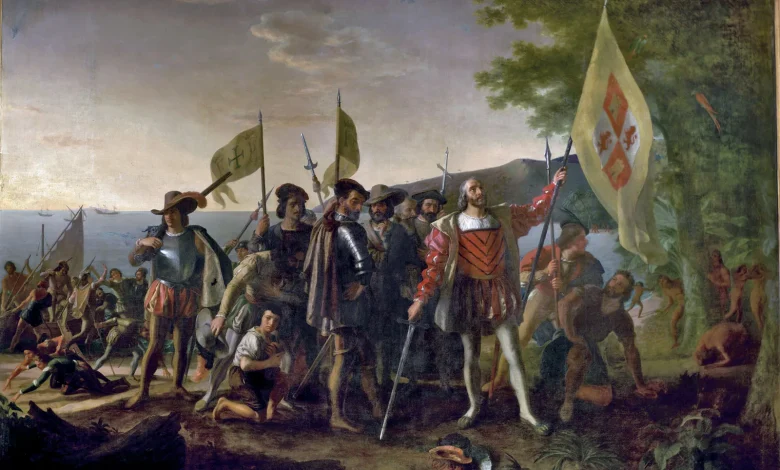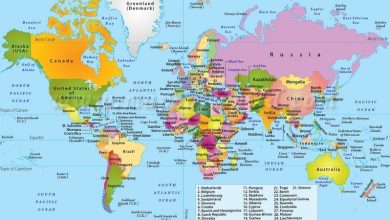What Is Colonization? Does Colonialism Still Exist?

Colonization and colonialism are complex historical phenomena that have shaped global relations and societies. Understanding their definitions, implications, and contemporary relevance is crucial for grasping the dynamics of power and culture in today’s world.
What is Colonization?
Colonization refers to the process of establishing control over foreign territories or peoples, often for purposes such as cultivation, trade, exploitation, or settlement. This process typically involves the occupation of land and the imposition of the colonizer’s culture, language, and governance on the Indigenous population
Historically, colonization has manifested in various forms:
- Settler Colonialism: Involves settlers establishing permanent residences in a new territory, often leading to the displacement or subjugation of indigenous peoples. Examples include European colonization in North America and Australia.
- Exploitation Colonialism: Focuses on extracting resources from colonized lands without significant settlement. This was prevalent during the European scramble for Africa in the late 19th century.
Colonization has been justified through various means, including economic gain, religious conversion, and a purported civilizing mission. These justifications often masked the violent realities of conquest and exploitation.
The Legacy of Colonialism
The impacts of colonialism are profound and multifaceted. While some argue that colonial powers contributed to infrastructure development and introduced modern education systems, these benefits often came at a great cost. The legacy includes:
- Economic Disruption: Colonized regions were often integrated into a global economy that benefited the colonizers at the expense of local economies. This created long-lasting economic dependencies.
- Cultural Erasure: Indigenous cultures were frequently suppressed or altered through assimilation policies, leading to a loss of languages, traditions, and identities.
- Social Stratification: Colonial rule often exacerbated ethnic divisions and social hierarchies within colonized societies, leading to ongoing conflicts post-independence.
Does Colonialism Still Exist?
While formal colonial rule has largely ended since the mid-20th century decolonization movements, many argue that forms of colonialism persist today:
- Military Occupations: Regions such as Palestine and Western Sahara remain under military occupation or control by foreign powers.
- Settler Colonialism: Countries like Canada, Australia, and the United States continue to grapple with their colonial histories as they maintain structures that privilege settler populations over indigenous ones.
- Economic Colonialism: Global economic systems often perpetuate inequalities reminiscent of colonial structures, where wealthier nations exploit resources from poorer countries under unequal terms.
In conclusion, while traditional forms of colonialism may have diminished, its legacies continue to influence global politics, economics, and social structures. Understanding these dynamics is essential for addressing contemporary issues related to inequality and cultural identity.
How did colonialism impact indigenous cultures and languages?
Colonialism has had a profound and often devastating impact on indigenous cultures and languages worldwide. This influence can be seen in various dimensions, including language suppression, cultural erasure, and the imposition of foreign customs.
Impact on Indigenous Languages
Colonialism has significantly contributed to the decline and extinction of many indigenous languages. As colonial powers established control over territories, they imposed their languages—such as Spanish, Portuguese, English, and French—often at the expense of native tongues. This process involved:
Language Suppression: Indigenous languages were systematically marginalized through policies that mandated the use of colonial languages in education, government, and daily life. For instance, in many regions, indigenous children were punished for speaking their native languages in schools.
Language Extinction: The forced adoption of colonial languages led to a drastic decrease in native speakers. In some cases, entire languages have become extinct as younger generations shifted to the dominant language due to social and economic pressures.
Despite these challenges, there are ongoing efforts to revitalize endangered languages within Indigenous communities, highlighting resilience against colonial legacies.
Cultural Erasure and Assimilation
Colonialism also resulted in the erasure of Indigenous cultures through various means:
Cultural Imperialism: European colonizers often dismissed indigenous customs, beliefs, and practices as inferior. This led to the imposition of European cultural norms and values, disrupting traditional ways of life. Many indigenous peoples were forced to abandon their spiritual practices and adopt Christianity or other Western religions.
Education Systems: Colonial education systems were designed to assimilate indigenous peoples into the colonizers’ culture. These systems not only suppressed indigenous knowledge but also severed intergenerational transmission of cultural practices. The focus on Eurocentric curricula marginalized traditional knowledge systems and contributed to a loss of cultural identity.
Land Dispossession and Its Effects
The seizure of land was a critical aspect of colonialism that severely impacted Indigenous cultures:
- Disruption of Traditional Lifestyles: Colonizers often appropriated lands that were vital for the sustenance and spiritual practices of indigenous communities. This dispossession disrupted traditional hunting, gathering, and agricultural practices that had been sustained for generations.
- Social Dislocation: The forced relocation of indigenous peoples into reservations or urban areas led to a breakdown of community structures and social cohesion. This dislocation has had lasting effects on community identity and cultural continuity.
The impact of colonialism on indigenous cultures and languages is, therefore, both profound and enduring. While many Indigenous communities continue to face challenges related to language loss and cultural erasure, there are also significant efforts underway to reclaim and revitalize their heritage. Understanding this history is crucial for fostering respect for indigenous rights and promoting cultural preservation in contemporary society.
What were the main reasons for European colonization?
European colonization was driven by a combination of economic, political, religious, and social factors. Here are the main reasons for European colonization:
Economic Motivations
- Resource Acquisition: The need for raw materials to fuel the burgeoning industries of Europe was a primary motivator. The Industrial Revolution increased demand for resources such as cotton, tobacco, and minerals, prompting European powers to seek new territories rich in these materials.
- Market Expansion: European nations sought new markets for their manufactured goods. As production capabilities soared, finding consumers for surplus products became essential. Colonies provided captive markets where European goods could be sold without competition from local industries.
- Investment Opportunities: With capital accumulation from industrial profits, European investors looked for profitable ventures abroad. Colonization offered opportunities to invest in agriculture, mining, and infrastructure in newly acquired territories.
Political Motivations
- National Prestige: Colonization was often viewed as a measure of national power and prestige. European countries competed to expand their empires, believing that larger territories equated to greater influence on the global stage.
- Strategic Advantage: Establishing colonies allowed countries to control key trade routes and military positions. For instance, controlling islands in the Caribbean or coasts in Africa provided strategic naval bases for trade and military operations.
Religious Motivations
- Spreading Christianity: Many European powers, particularly Spain and Portugal, were motivated by the desire to spread Christianity. Missionary efforts aimed at converting indigenous populations were often intertwined with colonial ambitions.
- Religious Freedom: Some groups sought refuge from religious persecution in Europe by establishing colonies where they could practice their faith freely. This was notably true for groups like the Pilgrims in North America who fled religious oppression in England.
Social Motivations
- Population Pressure: Rapid population growth in Europe created pressures for emigration. Colonies offered an outlet for surplus populations, providing opportunities for settlers seeking land and a better life.
- Adventure and Exploration: The Age of Exploration fueled a spirit of adventure among Europeans. Many were drawn to the idea of discovering new lands and cultures, often romanticizing the notion of exploration as a noble endeavour.





